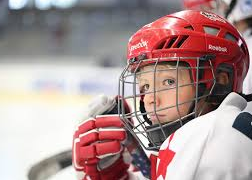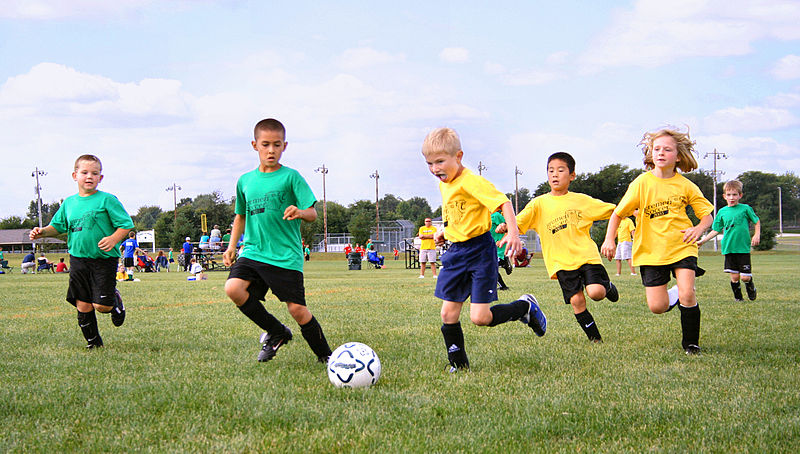Well it’s the middle of May and we should be blogging about playoff hockey action, however 2020 has introduced us to social distancing as the Covid-19 pandemic has impacted everyday life in a manner that we have not experienced before. Covid-19 has impacted our day-to day from our work, to educating our children to social events including sporting and leisure activities.
Minor Hockey Associations across Canada (and the United States) are trying to determine when they will resume or what the fall hockey season might look like. For many young players, their minor season was cut short as a result of the Coronavirus. For the year-round players, Spring hockey seasons have been cancelled all together. This pandemic has stopped hockey in its tracks, even as stories persist about die-hard parents who are trying to get their kids on the ice. In fact I know people who today, Sunday, May 17, have rented ice so their kids can skate. Even as we are still expected to be social distancing there are some parents who feel the need to get their kids on the ice during this time where we are awaiting word on when we can begin getting back to normal. Restaurants are still closed (opening later this week), malls are still closed, schools are still closed and even some parks are still closed, yet some folks are trying to get their kids back on the ice. That in itself may speak to another issue to be discussed at another time. Whether you believe the media hype about the severity of Covid-19, the fact is that there will no doubt be a direct impact on minor hockey moving forward.
What the fallout and impact might be as a result of the Coronavirus is an interesting topic to me. There are extremes to both sides. Even before the pandemic hit, there have been examples of questionable decisions made by coaches and associations. Here is an example. Last year during Spring hockey, one of the coaches for my son’s team arbitrarily made the decision that players on the bench would share water bottles. Now for years, kids in minor hockey had been using their own water bottles, part of the reason was for sanitary reasons as well as the prevention of contagious viruses. Every year you would hear a story of a young player getting sick or in some extreme cases dying as a result of sharing water bottles. In fact as far back as 2009, Hockey Canada shunned the thought of kids sharing water bottles as water bottles can provide a possible transmission route for the highly contagious flu viruses. At the time of last year’s Spring hockey there was a “hand, foot and mouth disease” virus that was going around our region. I was astounded that a coach would try to enforce sharing of water bottles on the bench. I personally was a hard “no” on this and instructed my son to use his own water bottle and not share with anyone, but that is just us. Many of you other hockey parents might be what’s the bug deal? For me it’s about prevention. It’s not about fear-mongering and putting your kid in a bubble. It’s about understanding the situation and not taking any unnecessary risks. It’s about providing a safe environment for our children. Now of course Spring hockey is an entirely different beast, but come on, common sense should prevail right? With Covid-19, you can bet that minor hockey associations will be taking a long hard look at how to proceed.
The Potential Impact on Minor Hockey
Earlier this month, Hockey Canada said it will decide when minor hockey will return with the guidance of public health officials. Until then, they “cannot provide an accurate or fair comment on the state of minor hockey.” As a result, many hockey parents across Canada are wondering if it will be safe to put their sons and daughters back on the ice. This presents an interesting dilemma with some parents questioning if they should even register their kids for minor hockey. It will be interesting to see what the registration numbers look like for the upcoming season (whenever that might be). Many have suggested that “as long is there is no vaccine, there’s won’t be hockey played like its normally played.” The NHL is still looking at various ways to get their players back. Practice facilities have still not opened at that level. 
Here are five potential impacts on minor hockey as a result of Covid-19.
- Lower registration – expect registration rates to fall unless parents are convinced that their kids will be protected and safe. For smaller associations, some might not even have the numbers. There could be a direct impact on registration if Hockey Canada and other jurisdictions do not have a solid plan to provide a safe environment for children to play in. Another point to consider, is the financial cost of playing hockey. We all know that hockey is not the cheapest sport to play. If some parents or both have lost their jobs as a result of the Covid pandemic then the ability to register their children in hockey may be in jeopardy. All kids deserve the chance to play hockey, but the reality is, is that not every family has the means for their children to play hockey.
- No hockey tournaments – as it is right now, the hospitality industry has taken a beating due to Covid-19. I cannot see Hockey Canada sanctioning out of town tournaments or perhaps any tournaments at all at the minor hockey level. The US and Canadian borders are still closed (but will open at some point) however travelling presents a whole other liability that Hockey Canada may just not want to assume.
- Physical Distancing and Preparation – if social distancing is the new norm for the next little while, there is no way that for any sport you can have 15-20 kids in the dressing room or on the bench. Dressing rooms will need to be reconfigured, how do you space the kids out on the bench? Will there only be one or two coaches on the bench. Rumors suggest that parents or grandparents will not be able to attend practices or games or that perhaps only a single parent may be able to attend. For older leagues what about body contact? Heck the NHL has been rumored to be discussing how to limit close contact which we can assume includes body contact. There are a lot of logistics to work out. In terms of prepping for practices and games, having kids get dressed at home or outside of the arena has already been discussed. This, in my opinion, will be one of the largest challenges as hockey is a social sport. How are you going to keep kids safe with regards to social distancing? Players drink from water bottles and spit out water. Some players spit on the ice. Sanitary conditions would need to be pristine in order to get the kids back on the ice.
- Equipment Changes – I’ve already touched on the water bottle issue, but what about other pieces of equipment? Not sure if this would become mandated at minor hockey levels, but will children be required to wear full face shields as opposed to cages? What about goalie masks?
- Team Size – in order to help with social distancing and such, I could see a proposal being made to reduce team size so that there are less players in the dressing rooms and less players on the benches. For small associations, this presents an addition problem of finding enough coaches and goaltenders, especially at younger levels where there is typically less dedicated goaltenders. Teams might go from full teams to having two forward lines and two defensive lines. More ice-time for the kids, but will this cause an increase in fatigue? Will we see more injuries?
In the 2018/19 season, there were a total of 621,026 registered ice hockey players in Canada according to the International Ice Hockey Federation.
The impact of Covid-19 will definitely have an impact on all levels of hockey. It will be interesting to see what changes Hockey Canada and Hockey USA look at in order to start the next season of minor hockey. Will the coronavirus ultimately be treated like the common flu and once a vaccine or “flu shot” is developed mean a return to normal? Until those items have been decided, Canada’s youth sports has ground to a complete halt. Our kids are missing out on hockey, baseball, soccer, lacrosse, tennis, swimming, and all of the great physical activities that are associated with organized sports. As parents and families we have adjusted for the short term, but what about the long-term? Part of the benefits of team sports such as hockey is the social aspect that it brings. Our kids learn how to participate in social situations and learn how to deal with adversity, competition and success or failure. Covid-19 has presented new challenges for families and individuals who play and enjoy hockey and other sports. However at the end of the day, there are bigger things than hockey and sports. Ensuring the physical and mental well being of our kids is a top priority for any parent. For many, sports does provide a sense of belonging and a social connection. There is a definite impact on the lives of children and families involved in youth sports who have seen their seasons cancelled. As parents we miss seeing our parents groups at games and practices (ok maybe not all parents… you hockey and soccer parents out there will know what I mean), so the social impact is almost as critical as the physical impact as pointed out in this piece on cbc.ca. Audrey Giles, University of Ottawa’s School of Kinetics commented: “Some kids don’t have strong social networks. They may be bullied at school but at soccer they have a different social group and it’s a great escape.”

I get it, sports are not for every one, but for those of us who are sports families, and not just hockey families, our routines have changed. Let’s hope that our “new normal” brings some of the positive and fun aspects of sport back to our routine and everyday life.